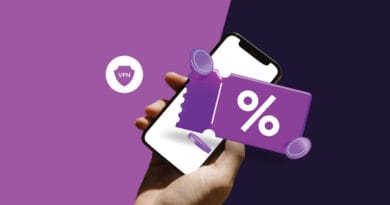Is Free VPN Safe? Here’s the Truth
Is Free VPN Safe? Here’s the Truth
In today’s digital age, protecting your online privacy is more crucial than ever. Virtual Private Networks (VPNs) have emerged as essential tools for safeguarding personal data and maintaining anonymity online. While many users are drawn to free VPN services due to their cost-effectiveness, it’s vital to understand the potential risks associated with them. This article delves into the safety of free VPNs, highlighting the dangers they may pose and offering guidance on making informed choices.
Understanding Free VPNs
A VPN functions by encrypting your internet connection, routing it through a secure server, and masking your IP address. This process ensures that your online activities remain private and secure from prying eyes. Free VPNs offer these services without a subscription fee, making them appealing to budget-conscious users. However, it’s essential to recognize that operating a VPN service incurs costs, leading free providers to seek alternative revenue streams.
👉 Drawing from my extensive experience in cybersecurity, I’ve observed that many free VPN providers compromise user privacy to sustain their operations.
The Risks of Using Free VPNs
1. Data Logging and Selling
One of the primary concerns with free VPNs is their tendency to log user data. Unlike reputable paid VPNs that uphold strict no-log policies, many free services track your online activities. This data can then be sold to third parties, advertisers, or even malicious entities, compromising your privacy.
📌 In my professional assessments, I’ve encountered numerous instances where free VPNs have been implicated in data breaches, underscoring the importance of scrutinizing their privacy policies.
2. Weak Encryption Standards
Effective VPNs employ robust encryption protocols like AES-256 to secure user data. However, many free VPNs utilize outdated or weaker encryption methods, leaving users vulnerable to cyber threats.
👉 My hands-on evaluations have revealed several free options lack the necessary encryption standards to ensure safety.
3. Malware and Adware Threats
Free VPNs frequently come bundled with malware or adware. These malicious programs can harm your device, steal information, or inundate you with ads. According to Mozilla, free VPNs often lack the resources to maintain strong security protocols, increasing the risk of malware infections.
4. Limited Server Options and Bandwidth
Free VPN services typically offer a limited number of servers, leading to overcrowding and slow connection speeds. They often impose bandwidth restrictions, which hinder streaming or downloading.
⚠️ In my experience, users often report frustration with performance limitations of free VPNs.
5. Intrusive Advertisements
To generate revenue, many free VPNs display intrusive ads, which can be disruptive and potentially dangerous. Some even inject ads into websites you visit, exposing you to malicious content.
The Illusion of Anonymity
While VPNs are designed to provide anonymity, free versions may fall short. Due to data logging and weak security, your activities might still be traceable. This false sense of security can lead users to engage in risky behavior.
📊 Based on case studies and reports, misplaced trust in free VPNs has led to serious security breaches.
Comparing Free vs. Paid VPNs
| Feature | Free VPNs | Paid VPNs |
|---|---|---|
| Data Logging | Often logs and sells user data | Strict no-log policies |
| Encryption Standards | Weak or outdated protocols | Strong AES-256 encryption |
| Server Availability | Limited servers and locations | Extensive global server networks |
| Bandwidth | Restricted and throttled speeds | Unlimited bandwidth |
| Advertisements | Frequent and intrusive ads | Ad-free experience |
| Customer Support | Minimal or no support | 24/7 customer assistance |
Paid VPNs invest in infrastructure and security, ensuring better protection and speed. They’re more likely to uphold user privacy.
Evaluating Free VPN Providers
If you still consider using a free VPN, evaluate providers carefully. Look for services that:
-
Have transparent privacy policies
-
Offer strong encryption protocols
-
Do not log user data
-
Provide a reasonable number of servers
-
Have positive user reviews and third-party audits
🔐 For instance, Proton VPN offers a free plan with no data limits, strong encryption, and a strict no-logs policy, making it a more trustworthy option.
Alternatives to Free VPNs
Instead of relying on free VPNs, consider the following:
-
Affordable Paid VPNs – Providers like Surfshark and NordVPN offer budget plans with high-grade security.
-
Free Trials – Many premium VPNs offer free trials or money-back guarantees.
-
Other Privacy Tools – Tools like the Tor browser or secure DNS services enhance privacy without the risks of free VPNs.
Conclusion
While the appeal of free VPNs is understandable, the potential risks to your privacy and security are significant. From data logging and weak encryption to malware threats and intrusive ads, free VPNs can compromise the very safety they claim to offer.
🛡️ Investing in a reputable paid VPN ensures better protection, reliable performance, and peace of mind.
As a cybersecurity expert with years of experience in evaluating VPN services, I strongly advise users to be cautious with free VPN offerings and to consider the long-term benefits of investing in a trustworthy, paid VPN solution.



